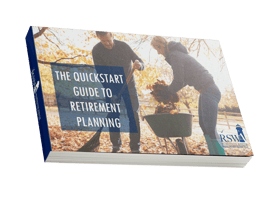We have been writing this newsletter for years and over that time we have written numerous articles about tariffs, inflation, debt limits, and other big economic and planning themes. Sometimes, it’s a little tiring and boring (for us and readers!) to constantly revisit the same topics. Unfortunately, we have no choice but to write about them because they are important and have deep impacts on our clients and managing their wealth. So bear with us, but we’ll do our best to keep it relevant and interesting.
Tariffs: President Trump's implementation of substantial tariffs on imports from Canada, Mexico, and China is poised to have significant repercussions for U.S. consumers. These measures include a 25% tariff on most goods from Canada and Mexico, with a 10% tariff specifically on Canadian energy products, and an increase from 10% to 20% on Chinese imports. While the administration argues these tariffs aim to protect national interests, the immediate consequences are anticipated across various sectors of the economy:
Consumer Prices: Tariffs will have an almost immediate impact on many products and goods:
- Autos: The automotive industry, heavily reliant on parts from Canada and Mexico, faces increased manufacturing costs. This escalation is likely to raise vehicle prices by several thousand dollars.
- Groceries: Many fruits and vegetables consumed in the U.S. are imported from Mexico. Tariffs on these goods could result in noticeable price hikes in the produce aisle.
- Electronics: With China being a major supplier of electronics, the 20% tariff on Chinese goods is expected to increase prices for items like smartphones, laptops, and televisions.
- Energy: The 10% tariff on Canadian energy imports may lead to higher gasoline and home heating prices, especially in regions heavily dependent on Canadian oil, such as the Northeast and Midwest.
Economic Impact: Beyond direct price increases, there could be wider economic effects:
- Inflation: As the cost of goods rises, overall inflation may accelerate, reducing consumers' purchasing power.
- Economic Growth: The combination of higher prices and potential retaliatory measures from affected countries could dampen economic growth.
- Employment: Industries facing increased costs may slow hiring or reduce their workforce to maintain profitability, impacting employment rates.
The tariff situation is fluid but, if enacted, has the potential to cause a deep impact on the economy with increasing inflation, decreasing economic growth, increasing volatility in investment markets, and creating uncertainty for consumers and employers. WSJ AP News NY Post
Private Hiring Slows in February: As if on cue, ADP released its payroll numbers for February and private companies added 77,000 new workers in the month, much lower than the 148,000 expected. It was the smallest increase since July. Policy uncertainty and the slowdown in consumer spending seem to be the main factors. Analysts suggest that businesses are hesitant to hire as they assess the impact of current administration policies. One month for any economic indicator does not portend a trend but other upcoming data will be analyzed to see if it points to a slowing economy. CNBC
What to do? The volatility of the last few weeks has unsettled many investors. The importance of tariff impacts is vast, and the majority of economists believe they are negative, especially in the short term. But, all of this could change quickly (even as this is posted). We will continue to monitor the economic situation as it unfolds but to predict what will happen with the economy and markets is impossible. We have always maintained that the best course of action in almost any scenario is to have a solid asset allocation target for a client’s goals and risk tolerance and to rebalance accordingly along the way. It has always served us well in the past.
Financial Planning/Investment Strategy Corner:
Protecting Your Personal Data: With the new DOGE task force involved in all aspects of government data, there is a renewed interest in how to protect your personal information. There are actions experts recommend you can take to protect your data, such as freezing your credit, reviewing your credit report, reviewing your Social Security statement, using a secure ID for tax filings, and using PINs, two-factor authentication, or password management software. Take the time to protect your data and periodically review it, so that your personal information is secure. CNBC Identy Theft Center
Quick Hits:
- Here are some of the best books coming out in March: Barnes & Noble
- We’re springing forward on time this weekend, here’s how it can affect your health: AP News
- Scientists took ten years to solve a problem about superbugs, it took AI only two days: BBC
- Sometimes the best new entrepreneurs, are the ones in their 50’s and 60’s: WSJ
- How long you can retire on $1M and Social Security by state: Visual Capitalist
Using Sisu in Facing Adversity: Sisu is a Finnish concept that embodies perseverance, and inner strength, with an action-oriented mindset. It enables individuals to push beyond their perceived limits in times of adversity. Sisu is deeply rooted in Finnish culture, but anyone can cultivate it by fostering resilience, courage, and determination in overcoming challenges. Many regard it as the “second wind” of mental toughness after someone feels they have reached the limits of their mental and physical limits. Of course, you can take it too far, and persist with something when you shouldn’t, so it’s essential to balance sisu with reason and self-awareness of the situation. Used in the right context, a sisu mindset can empower individuals to face difficult situations with confidence and persistence. Psychology Today Get Pocket
Quote: “Never confuse a single defeat with a final defeat.” F. Scott Fitzgerald
Thank you for reading RSWA Financial Advisor Insights! We welcome feedback, and please forward this to a friend! Be well, take care, and stay safe!
